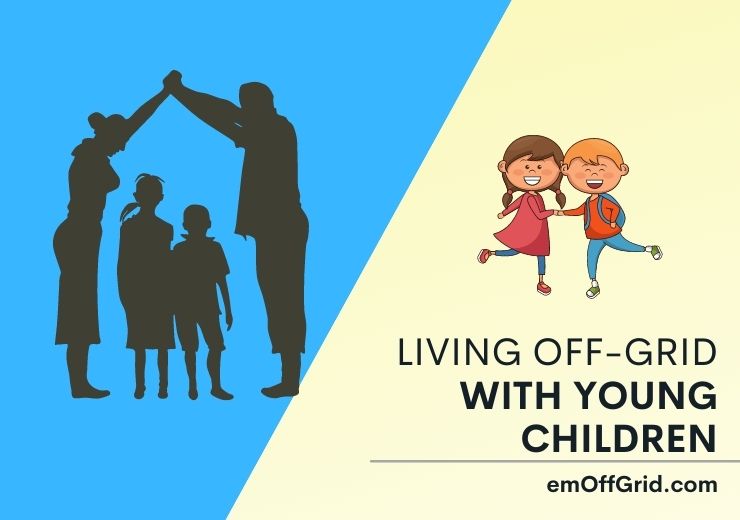Living off the grid means choosing an eco-friendly approach towards life and liberating yourself from the daily increasing utility bills. However, it requires a lot of preparation and dedication, especially if you live off the grid with young children.
When you choose to live off-grid, you need to make some sacrifices and adjustments in your lifestyle. However, adjusting to this new lifestyle may not be easy with your young ones. The biggest concern will always lie around children.
For those of you who may be considering shifting to an off-grid lifestyle with your young children, we have shared our experience and thoughts in this article. We have discussed the benefits of living off-grid with children, common problems you may face, and how to start with this lifestyle.
Contents
How to Start Living Off the Grid with Young Children
Living off the grid with young children needs more mental preparation than any physical work. No one can teach you how to raise your children. It is you who learn, experiment, fail and develop new skills. It is a process that cannot be taught. It comes from experience.
Every parent wants the best for their children. In search of the best, they try to set unexpected goals which they cannot achieve. It is not just to give the best; it is more how you make what you have the best for your child.
The responsibility of nurturing your young ones may be your priority, however, don’t take unnecessary stress. The needs for a kid will remain almost the same as that of an adult.
You may get some help while preparing for off-grid living from our article: 42 DIY Ideas For Off-Grid Living For Your Awesome Moments.
So, in this article, we will see how to live off-grid with children and create good memories and experiences.
Benefits of Living Off-Grid for Young Children

Every family that chooses to live off the grid most certainly has a strong reason for doing so. So, before you decide to live off the grid, you should know the benefits of living off the grid, especially with your young children. This may inspire you to go above and beyond in order to enjoy the benefits in the long run.
Enhance Physical and Mental Health
Off-grid living has a positive impact on both physical and mental health. Getting a breath of fresh air is one of the most beneficial aspects of an off-grid lifestyle. It not only improves your mood but also has a good influence on your child’s mind.
Breathing in fresh air improves the functioning of your lungs, heart, and brain. When we take a deep, pollutant-free breath outside, it helps widen our airways; allowing us to take in more oxygen and improve our lungs’ detoxifying activity.
Do you know that feeling after a long day when you arrive home to see a serene neighborhood where you may hear crickets chirping and nocturnal birds roaming around? The feeling is deeply relaxing, isn’t it? Your mind and body are both refreshed, and you feel like spending some quality time with your spouse and child.
With off-grid living, you can get think of your own mini home garden for some fresh veggies. Also, the food you get in the suburbs is fresher and more nutritious compared to the food in the main town. So, you and your child get a healthier lifestyle with less consumption of processed food.
Lessons of A Lifestyle and Personality
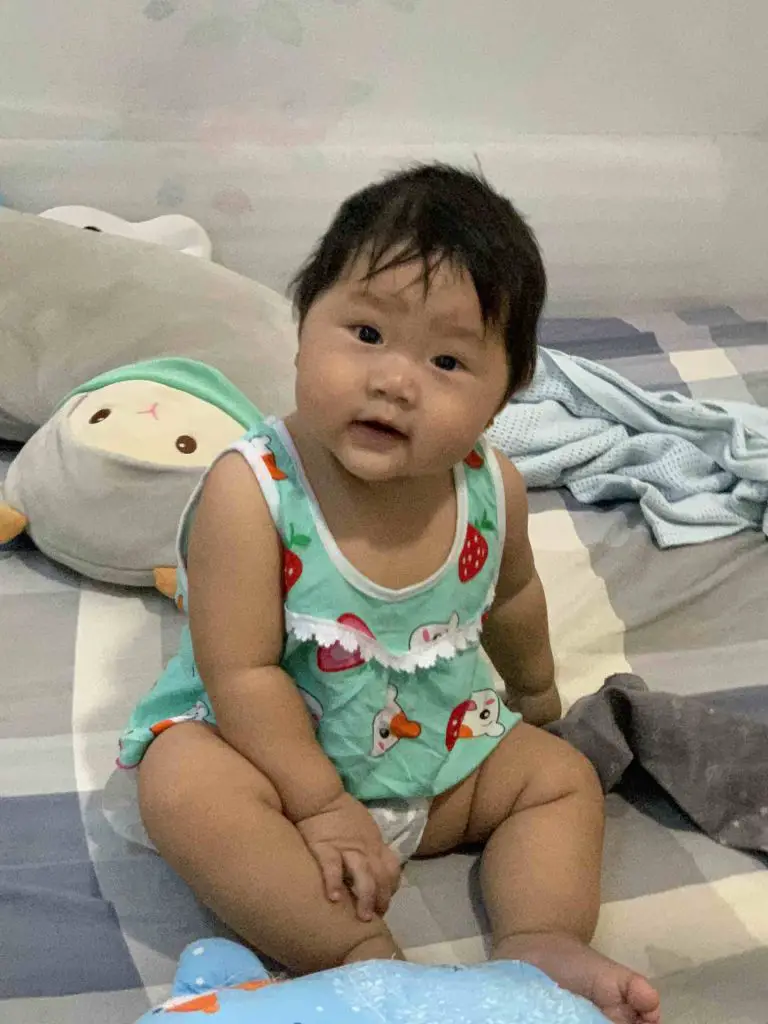
Most of us can love the delight and satisfaction we feel when we engage ourselves in the magnificent environment off the grid. Whether it’s sleeping on a soft beach and grass, trekking up a mountain or hilly terrain, or wandering through a field of crops and other beautiful flowers, we come closer to nature.
There are certain things, behaviors, or thoughts which you cannot change in one day. However, when your children are raised in such an environment, they very well understand the importance of conserving energy. It needs a good amount of time to inculcate certain habits.
Raising kids with an off-grid lifestyle will bring them close to nature and develop their personalities. Your children will learn to be self-sufficient because living this way is not as easy compared to life in the urban area. They will know how and why to take care of the environment.
According to a recent study growing up in a green suburban setting improves a child’s IQ and reduces their risk of misbehavior. These kids will have strong bodies because there is massive room for exercise. Also, physical training enhances blood flow to memory-related brain areas, which will boost the brainpower of a kid.
Family Bond
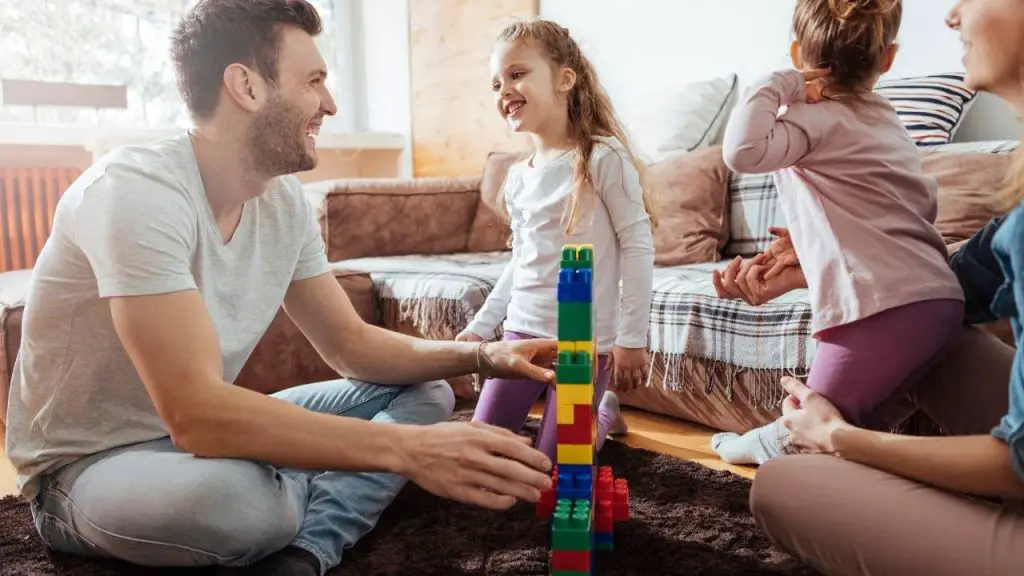
The parent, child, and family bond fosters a child’s physical, health, emotional, and social growth from an early age. Both child and parent share a special connection that they love, cherish, and develop. Your child’s attitude, choices, and general behavior are shaped by this interaction with the parents and family.
An off-grid lifestyle helps you spend a good amount of quality time with your loved ones, which is impossible in an urban lifestyle. You work together, cook together, eat together and care for each other. This develops a close-knit family bonding which your child will learn in their early childhood.
According to studies, a positive parent, child, and family relationship benefits both the children and the family. Parents that care about their children will raise successful children. Your good relationship with your youngsters and the degree to which you are devoted to them predicts how the child will behave in the future and for the rest of their lives.
When kids have a steady relationship with their families, they learn to control their emotions in stressful and challenging situations. Parental involvement and intervention in the child’s daily life lay the groundwork for improved social and intellectual abilities.
Family bond also is built with some activities that allow all of the members to do together. Such as watching TV or simply planting a tree together.
Some Problems With Young Children When Living Off-Grid
Once you decide to take the big step of shifting to an off-grid lifestyle, you are usually pretty well prepared — at least in terms of knowing how to keep yourself alive in the wilderness. However, when it comes to parenting children in off-grid living, nothing can be promised in advance.
Living off-grid requires parents to be continuously vigilant, from doing the laundry to ensuring the safety of their children. Additionally, they themselves have to adapt to a whole new set of family norms. There are tons of chores, lots of dangers, and many other issues to deal with.
So, let us look at some problems you may have to deal with or take care of when you live off-grid with children.
The Safety of the Young Children
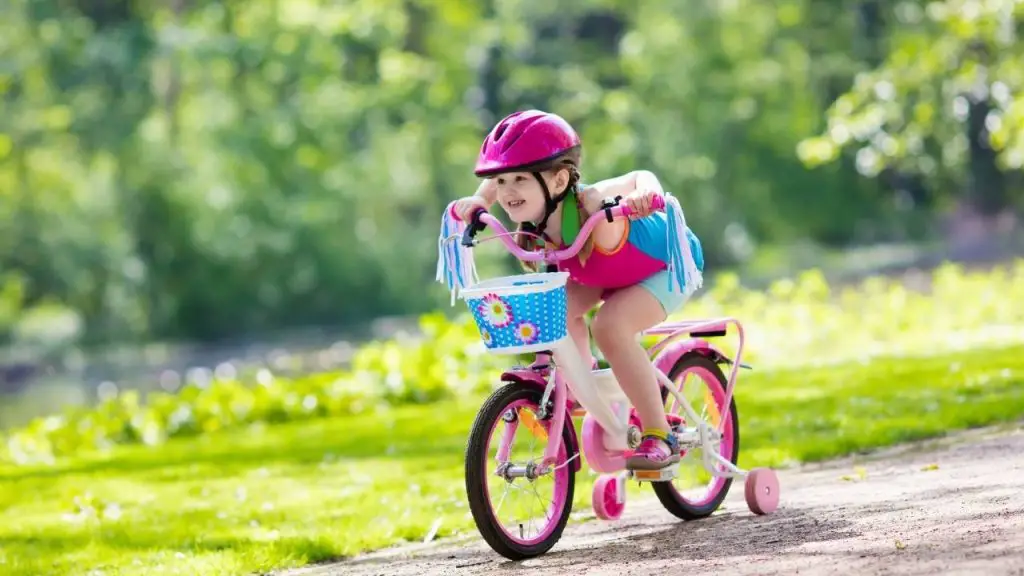
Kids are notorious for their mischievous disposition and require a great deal of attention, especially for kids living an off-grid lifestyle. There can be many dangers and hazards in our natural environment to keep a parent’s mind busy with what might go wrong.
For a parent living an off-grid life, they must keep in mind that nearly everything can be dangerous for their young ones. Let us have a look at some situations which can cause safety issues for your young ones.
- You will be surrounded by trees, woods, rocks, insects, and wildlife, a major safety concern for children. Our kids need playgrounds to have fun, explore, and grow; now that we are in the off-grid location, these playgrounds can be vast and full of hidden dangers.
Kids learn via play, and they require the opportunity to gain risks, push their boundaries, and master new abilities. Rattlesnakes, thorns, wasps, and other insects can be found on playgrounds, putting children at risk.
- Off-grid areas also have rivers or water sources. Many kids like to play around them. However, this is another danger that you must be cautious about. Learning basic life-saving skills is a good idea when you switch to off-grid living.
- Young kids may get poisoned in various ways like ordinary household items, such as household detergents and medication dosage, etc. However, when you are off-grid, you may face additional dangers like wild fruits, including sodom apple or datura.
- Toddlers are busy, curious creatures who will examine and even try to eat or drink whatever they can get their hands on. Younger kids may get injured from scorch burns from hot drinks or steam. Plus, they could even get hurt by fire burns resulting from exposure to direct fire.
Leaving food on the stovetop, usage of heaters, irons, ovens, etc., is another source of danger for young children. Therefore, you must be extra vigilant and ascertain that you minimize as many dangers as you can.
Some Tips for Parents
- Remove all unnecessary stuff and keep the area clean and clear to ensure any source of danger is out of the reach of your children.
- Always inspect the areas before letting your kids be around them, whether to play or do some other activities.
- Ensure your children are wearing shoes before stepping out of the house.
- It is advisable to have good fencing around your house so that your children can not go too far without your notice.
- Do not choose to live off the grid in a place that is too deserted and secluded.
- Keep basic medical first aid kid readily available.
- When the young children are knowledgeable enough, teach them how to protect themselves.
Nutritional Supplements, Especially Milk or Powdered Milk
Feeding your children with a nutritional diet may not be as simple as when you used to live downtown. Nutritional supplements may not be readily available near your off-grid location. So, it is very important to maintain a sufficient supply of such items.
Your child needs a balanced diet full of nutrients such as fruits, milk, vegetables, whole grains, etc. Knowing the right amount of calorie intake for you and your child is very important, especially when you live off-grid because you need to plan accordingly.
According to the specialists, an adult needs an average daily intake of about 2500 calories while it is around 1600-2000 calories for children. As the children grow and develop, their calorie requirements steadily rise from low to high. So, your diet plan must be designed keeping this in mind.
It is not just the calories that must be counted. Proteins, fats, and micronutrients such as zinc, iron, calcium, magnesium, and salt, are the kinds of nutrients that the human body needs. When it comes to daily requirements, make sure your meals cover each of them.
Milk is one of the most important things which is required for your child’s healthy growth. It not only provides strong and healthy bones for your children, but it also assists in their general growth and development. Therefore, a parent should store a lot of milk, especially when living in off-grid locations.
Some Tips for Parents
- Store and preserve enough milk powder at home. You can check out our article on how to store powdered milk.
- As the child gets a little older, you have to make sure they get enough protein. You can know more about DIY Foods in our blogs.
Medical Emergencies
One of the most challenging moments with off-grid living may arise when you or your children become ill, injured, or show some strange symptoms. These situations may make you feel irresponsible for raising your family in such a remote location without access to medical care.
You should remember that when you are living off-grid, a friend can’t just run across the street to assist you in these situations. You have chosen this lifestyle, and you need to be prepared for dealing with medical emergencies.
Just as keeping a first aid kit readily available is important, you need to have basic training for dealing with various medical situations. It is said that 90% of lives can be saved if proper first aid is given to the victim at the right time.
Common colds, head lice, flu, chickenpox, measles, Hepatitis A, pinworms are some of the most frequent ailments related to children in off-grid locations. So, it is important that you can identify the symptoms and take proper care until the time you can get medical help.
Advice for Parents
- Keep some necessary medicines readily available.
- Take a first aid and CPR courses and specifically learn how to handle injuries and ailments common to children.
What About Learning and Schooling? Will They Have Good Educational Opportunities?
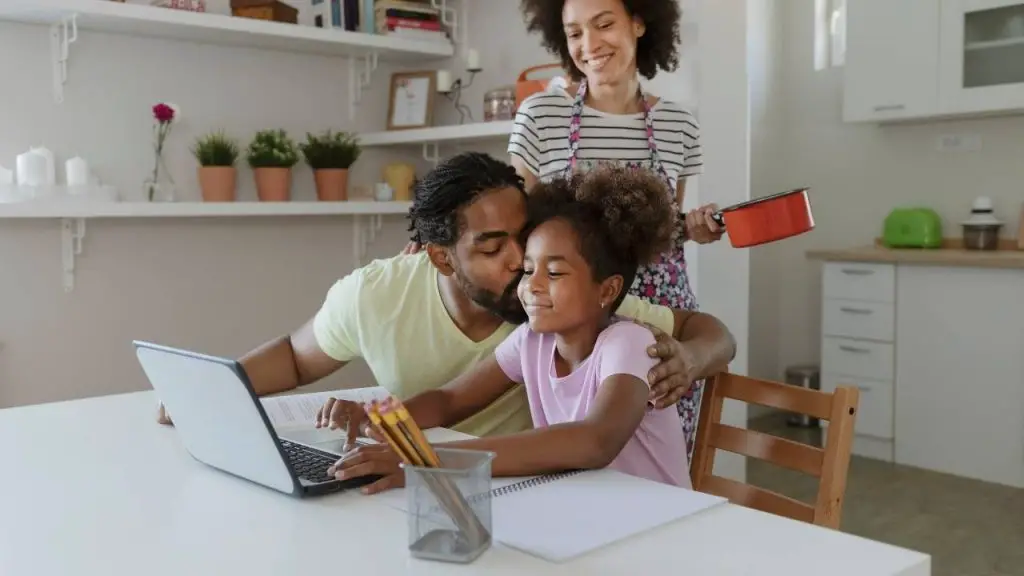
Every parent aims to provide a relatively standard education for their children. But for many off-the-grid families who live in such remote locations, traveling to the nearest school every day isn’t a practical option.
However, this does not mean that your child will not get a basic education. You need to look for other alternate options. Home-schooling is one such option that offers many advantages and possibilities that may not be available even in a public school.
Homeschooling has no sage limit, but it provides kids with skills and knowledge that will help them to be more self-reliable. Moreover, transitioning to high school on the mainland can also be a smooth experience.
Advice for Parents: If you decide to homeschool your child with off-grid living, you need to have a reliable internet connection.
Loneliness in Child’s Heart
You may think that with off-grid living, your child may feel lonely. Yes, they may feel lonely at times as there is no television and not many people around to interact with. Usually, they are not even surrounded by their grandparents.
The off-grid community is quite small, and your kids may not have enough peers to play with daily. Away from the city noise and urban lifestyle, living in the off-grid areas can thus be boring for your child, and they may feel lonely.
However, with no TV and fewer distractions, you may get more time to spend together. You get an opportunity to discuss your life, and share ideas while having your meals together. Working together on many activities will grow your bonding and even contribute to your children’s growth.
Tips for Parents
- You should spend as much time as possible with your children.
- Create plenty of space for your children to play.
- Let your child stimulate their imagination and creativity.
- Get them involved in various activities. This will keep them enhanced and they will learn valuable lessons as well.
Personality Thinking
Having been raised in an off-grid lifestyle away from electronics, television, and the internet, I found myself enjoying my childhood. Life was full of fun from hunting, milking, swimming, and hiking.
Many practical skills cannot be taught in schools. I learned the family culture of sharing responsibilities. This sense of shared self-reliance at such a young age can empower kids and will boost their self-esteem.
Living in small communities has the benefit of allowing individuals to know each other and tap into their collective pool of knowledge and experience.
Conclusion
The natural surroundings of an off-grid lifestyle are ideal for raising children, especially when they are very young. You have to spend more of your time with your children, as a parent, a teacher, and a companion. When you spend so much time together with your kids, you get closer to your children and develop strong family bonding.
As always, thank you for choosing ”Emoffgrid” as your reading source! I hope you find the shared information helpful to you.
It is possible that we may have missed out on some points. Tell us from your experience about anything that you would like to add about living off the grid with young children.
